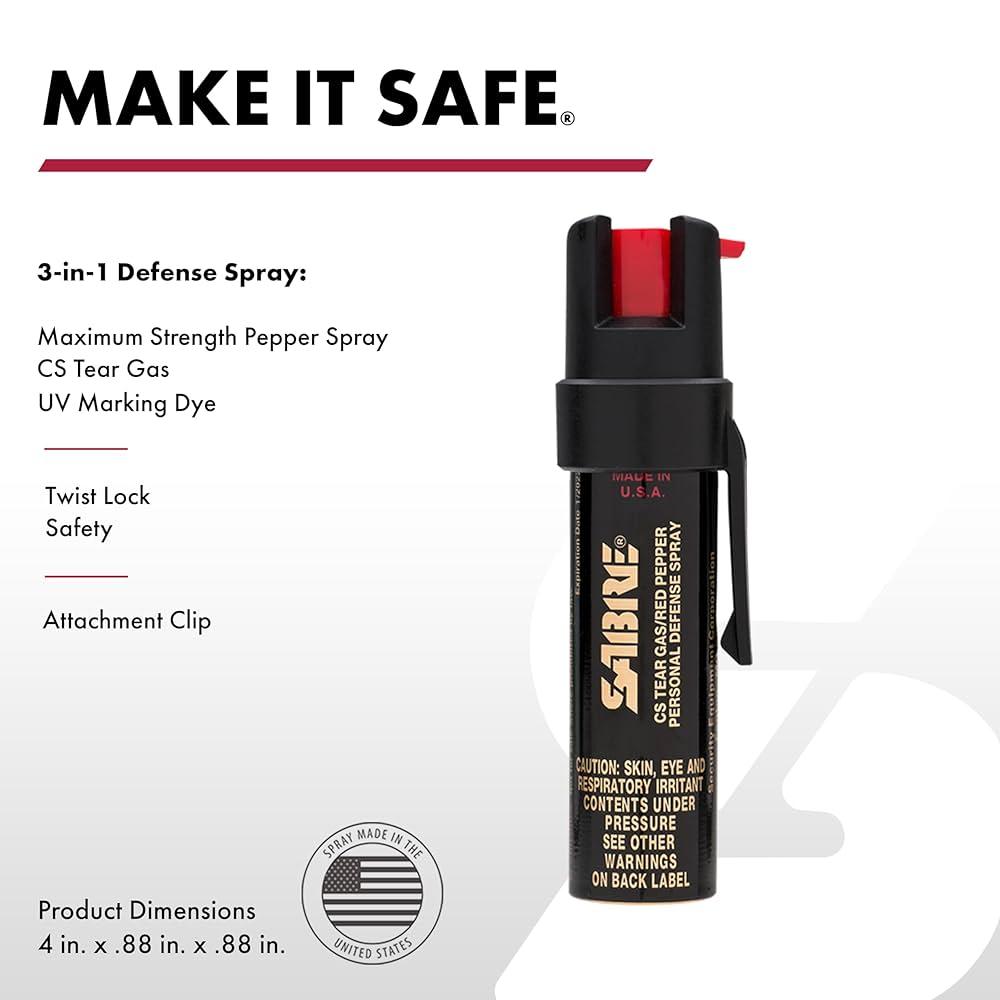Table of Contents
- Federal Regulations Governing Use of Self-Defense Sprays on Government Premises
- Legal Implications and Liability Concerns for Government Employees
- Best Practices for Policy Implementation and Employee Training
- Recommendations for Balancing Security and Civil Liberties in Public Facilities
- In Summary
Federal Regulations Governing Use of Self-Defense Sprays on Government Premises
Federal law imposes stringent restrictions on the possession and use of self-defense sprays, such as pepper spray and mace, within government premises. These regulations are designed to maintain security and order in sensitive environments where safety is paramount. Under various statutes, including the 18 U.S. Code § 930, individuals are generally prohibited from knowingly possessing any dangerous weapon, including chemical sprays, in federal buildings unless explicitly authorized. This prohibition extends to both public employees and visitors, underscoring the zero-tolerance approach to unauthorized self-defense devices in federal facilities.
Exceptions to these federal restrictions are limited but clearly defined. Authorized personnel, such as certain law enforcement officers, may carry self-defense sprays as part of their duty equipment. Furthermore, some federal agencies may grant special permits under regulated conditions. Users must comply with strict criteria, including:
- Proper registration or authorization by the relevant federal authority
- Use solely for self-defense in immediate threat scenarios
- Adherence to storage and transportation rules within government property
Non-compliance carries serious legal consequences, including fines, confiscation of the spray, and potential criminal charges. This regulatory framework reflects the federal government’s commitment to balancing individual self-protection rights with collective safety on government grounds.
Legal Implications and Liability Concerns for Government Employees
Government employees carrying self-defense sprays on federal property face a complex legal landscape, where the risk of personal liability is significant. The unauthorized use or improper handling of chemical deterrents can result in serious consequences, ranging from administrative discipline to civil lawsuits. Because federal properties often have strict security protocols, employees must understand that any defensive action involving sprays must be justifiable under both federal regulations and agency-specific policies. Failure to comply with these standards not only jeopardizes their employment status but could also expose them to criminal charges or claims for damages if the use of force is deemed excessive or unwarranted.
Key considerations for government workers include:
- Ensuring the spray is approved and permitted within the agency’s jurisdiction.
- Adhering strictly to training guidelines on when and how to deploy sprays.
- Documenting any incidents thoroughly to support self-defense claims if challenged.
- Being aware that immunity protections vary and are not absolute.
Understanding these factors is essential to mitigate legal exposure and uphold accountability. Government agencies are increasingly clarifying their policies to balance employee safety with public trust and legal compliance. Employees are advised to consult their agency’s legal counsel or compliance office before carrying or using self-defense sprays to ensure full alignment with federal law and internal regulations.
Best Practices for Policy Implementation and Employee Training
To ensure compliance with federal regulations regarding the use of self-defense sprays on government property, organizations must adopt a strategic approach to policy execution. Begin by developing clear, concise policy documents that outline permissible use, storage requirements, and legal ramifications. Engage multiple departments, including legal advisors and security personnel, to tailor guidelines that address site-specific concerns while adhering to overarching legal frameworks. Regular audits and updates should be institutionalized to reflect changes in legislation or security environments, preventing ambiguity and reducing liability risks.
Employee education is equally critical, demanding comprehensive training programs that go beyond basic awareness. Effective sessions should incorporate scenario-based learning, emphasizing the responsible handling and situational appropriateness of self-defense sprays. Additionally, incorporate
- hands-on demonstrations
- clear communication channels for reporting incidents
- and periodic refresher courses
Recommendations for Balancing Security and Civil Liberties in Public Facilities
Striking an equilibrium between robust security measures and the protection of civil liberties in public facilities demands a nuanced approach. Authorities must implement policies that safeguard individuals without encroaching on fundamental rights such as self-defense. This requires transparent regulations that clearly outline permissible items, like self-defense sprays, while ensuring these policies are enforced consistently and fairly. Engaging community stakeholders in the policy-making process promotes trust and helps tailor security protocols that respect diverse perspectives and legal norms.
Recommendations to achieve this balance include:
- Developing comprehensive guidelines that distinguish between legitimate self-defense tools and prohibited weapons.
- Providing employee and visitor education on rights and restrictions within government premises.
- Incorporating advanced screening technologies that minimize privacy intrusions.
- Ensuring ongoing reviews of security policies to adapt to evolving threats and legal precedents.
- Encouraging transparent reporting and accountability mechanisms for enforcement agencies.
In Summary
In summary, the evolving legal landscape surrounding the use of self-defense sprays on government property underscores the necessity for clear regulatory guidelines. As federal authorities continue to balance public safety with individual rights, staying informed about current laws and restrictions remains crucial for citizens and officials alike. Ongoing dialogue and legal scrutiny will be essential to ensure that policies effectively address security concerns while respecting lawful self-defense measures.Check Our Other Blogs
- StunGun – Your Trusted Source for Stun Guns, Laws, and Self-Defense Tips
- PepperSprayLaws – Your Trusted Resource for Pepper Spray Information
- StunGunLaws – Your Trusted Guide to Stun Gun Legality and Safety




